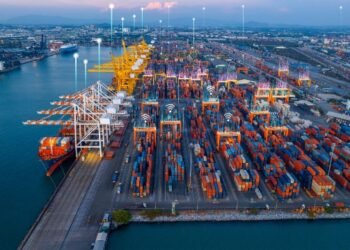The Bank of Ghana (BoG) has called for a collective effort to address the barriers to cross border payments including cost, speed, access and transparency to boost intra-African trade.
Dr. Ernest Addison Governor, Bank of Ghana, said the future of the AfCFTA looks promising but member countries must be fully committed to measures that will enhance cross border payments as recommended by the Financial Stability Board in October 2020.
“Indeed, given the right policies, Africa’s collective efforts at integrating existing national payment systems could enable African firms to innovate, invest, and create job opportunities. Together with digitalization, an integrated payment system would help Africa foster convergence of institutional frameworks and create a more effective regional financing ecosystem”.
Dr. Ernest Addison
Additionally, an integrated payment and settlement system would promote efficiency in regional trade by facilitating smooth flow of payments, underpinning economic activity and fostering transparency and efficiency in intra-African trade, Dr. Addison emphasized.
Dr. Addison indicated that Africa needs to improve on the existing payment infrastructures and arrangements to support the requirements of cross-border payments. Technical and operational improvements to existing domestic and regional payment infrastructures that facilitate cross border payment need to be continuously made.
Also, he noted that the various regional payment systems, (including SADC-RTGS, PAPSS, REPSS, STAR-UEMOA, GIM-UEMOA and SIRESS) need to be integrated to enable each system to communicate with the others. Resolution of these issues, he said, would enable frictions culminating from different operating hours, high transactions cost, weak competition and access regimes to be addressed.
Harnessing the potential of the AfCFTA
Furthermore, the Governor of the Bank of Ghana said commitment to a joint public and private sector vision to enhance cross border payments is an important strategy that could help Africa realize the true economic potential of the AfCFTA.
He explained that a common vision and agreed targets could encourage market participants and policymakers to work together to enhance cross-border payments. The harmonization of regulations, supervision and oversight frameworks could also mitigate challenges stemming from multi-jurisdictional nature of cross-border payments, Dr. Addison added.
Dr. Addison emphasized that payment and settlement system is critical for enhancing intra-African trade and investment, the key objective of the AfCFTA.
“Through the Association of African Central Banks working groups on payment system, the Bank of Ghana is collaborating with other central banks to provide common solutions to the various challenges confronting payment system development in Africa.
“Collectively, we are working to deliver an integrated and interoperable continental payment system by linking all the regional payment systems, leveraging on the PAPSS Connectivity, to enhance the power of digital payment for value creation”.
Dr. Ernest Addison
Boosting the AfCFTA
Speaking on ‘Boosting the AfCFTA: The Role of Payment and Settlement Systems’ at a forum organized by the Ghana Academy of Arts and Sciences, Dr. Addison highlighted that an efficient and resilient payment and settlement systems infrastructure is fundamental to the promotion of intra-African trade.
According to him, a supportive payment and settlement system can be used as a strategic tool to enhance and facilitate the African regional integration drive, increase competitiveness, and improve Africa’s position in the international financial system.
Broadly, the African Continental Free Trade Area (AfCFTA) aims to eliminate or reduce tariff and non-tariff barriers among the 54 African countries to speed up intra-African trade and improve Africa’s trade performance in the global market.
Regarding the expected benefits, AfCFTA, with its continent-wide vantage point and enhancing competition, provides opportunity for Africa to competitively integrate into the global economy, reduce poverty and promote economic inclusion.
The World Bank, for instance, estimates that implementation of AfCFTA would provide impetus for lifting an additional 30 million Africans from extreme poverty and 60 million from moderate poverty. Real income could also increase by 7 percent or almost US$450 billion and there would be a boost in African trade, especially intraregional trade in manufacturing.
The volume of total exports is projected to increase by nearly 29 percent by 2035. Intra-African exports are also estimated to increase by almost 81 percent, while exports to non-African countries are expected to increase by 19 percent.
READ ALSO: Green Ghana Initiative: North Tongu District To Start Planting 15,000 trees Quarterly























